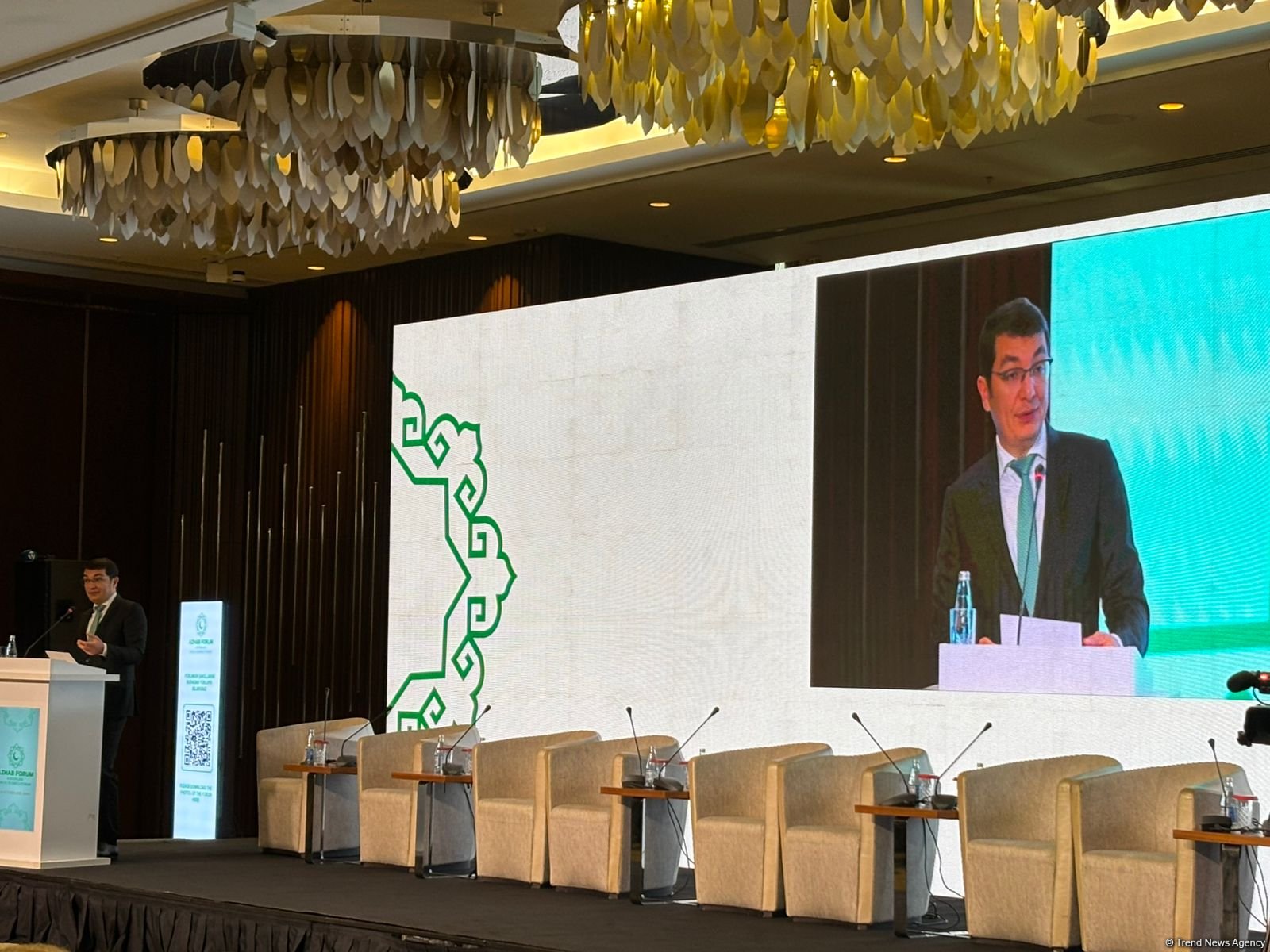BAKU, Azerbaijan, October 7. Over $344 billion in foreign investment has been poured into the country's economy from 2004 through 2024, Azerbaijan's First Deputy Minister of Economy Elnur Aliyev said at the Halal Business Forum in Baku, Trend reports.
As reported by Trend on Tuesday, this was announced by Azerbaijan's First Deputy Minister of Economy Elnur Aliyev at the Halal Business Forum in Baku.
According to him, Azerbaijan has achieved significant success in diversifying its economic model. The socio-economic reforms and integration into the global economy have created broad and favorable opportunities for leading international companies to operate.
"More than $344 billion has been invested in the country's economy from 2004 to 2024, of which about $213 billion has been directed to the development of the non-oil sector. Recently, as part of the First Azerbaijan Investment Forum, documents were signed for projects with a total value of more than $10 billion, reflecting the confidence of foreign investors and the stable investment environment in the country.
Currently, the share of the non-oil and gas sector in the total economy has reached 68 percent, and further growth in this indicator is expected by the end of the year. Thanks to the reforms and business support mechanisms being implemented, the private sector accounts for about 81 percent of the country's economy," he said.
Aliyev noted that Azerbaijan's advantageous geographical position makes it a strategic center of regional economic policy. The volume of transit cargo transportation through the Middle Corridor is growing year by year, and with the launch of the Zangezur Corridor, this figure will increase even more.
“The modern infrastructure created in the country - the Baku International Sea Trade Port, the Alat Free Economic Zone, as well as a developed railway network - provides investors with direct access to global markets and high transit efficiency,” the deputy minister stressed.
According to him, industrial zones, modern transport and digital infrastructure, as well as human capital, create a solid platform for the production of competitive products and the development of services.







